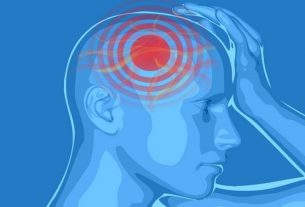According to the World Health Organization (WHO), obesity is an abnormal or excessive accumulation of fat that can be harmful to health. It is classified as a chronic disease that has a multifactorial origin involving genetics, lifestyle and the characteristics of the economic, social and family environment.
The National Institute of Statistics and Geography (INEGI) reported that in Mexico 42 percent of men aged 20 years or older suffer from obesity, meanwhile, 37% of women suffer from it. In 2018 22 percent of girls and boys under the age of five were at risk of being overweight.
Novo Nordisk, through a bulletin consulted by NotiPress indicated that there is a close relationship between obesity, depression and anxiety. The latter two are associated with eating disorders or body image distortion. Pilar Bautista, cognitive psychologist and contemplative psychotherapist, said: “we currently live in an ‘obesophobic’ society that stigmatizes the person with obesity. This brings consequences such as low self-esteem, alteration in their interpersonal relationships, less possibilities of access to the best jobs”.
The American Psychological Association (APA) reported that a study showed the impact of obesity in women, which was associated with a 37% increase in major depression. Also, APA pointed out how depression can cause and result from stress, which can cause changes in eating habits and activities.
The causes of obesity are not only limited to genetic factors, said Ms. Bautista, but also to overeating for prolonged periods of time or having a sedentary lifestyle. The psychologist explains that obesity is closely linked to the way we think and feel. Negative feelings are reinforced by the stigma and discrimination of people with obesity, the specialist pointed out.
A disorder associated with obesity is binge eating, which can lead to overeating and result in weight gain. The psychologist considers important to address the emotions that lead the person to overeat. She also explained that the causes of the disorders are complex and different from one person to another. Overeating has addictive patterns and when a person does not have the psychological tools to face unpleasant emotions, he/she perceives food as a refuge.
Treating obesity requires the intervention of physicians, nutritionists, physical trainers and psychologists. The final product should be weight reduction, by means of pharmacological or surgical treatment, encouraging a less sedentary lifestyle, promoting physical activity, change of eating habits and positive management of emotions.
Regarding the pharmacological approach to obesity, Dr. Claudio Fiorentini, medical manager of obesity for Novo Nordisk Mexico indicated: “different studies have shown that any loss of 5-10% of body weight with drugs such as GLP-1 receptor agonists, significantly improves the health of the person with obesity and reduces the impact of comorbidities associated with it. Similarly, Ms. Bautista added that it is necessary for a person to address, through a psychologist, the emotions that lead to overeating.
Psychological treatment can be started at home to treat obesity, starting from a greater understanding and compassion towards oneself. Identifying the reason for ingesting food is necessary, as well as recognizing unpleasant emotions are important for a quick recovery, the psychologist explained.




